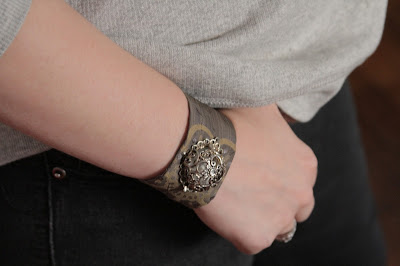Movie and television critics alike have lauded this as the year of the woman in entertainment (although, to be fair, so were 2009, 2011 and 2012). With critical and commercial successes that featured females in writing, directing and acting roles, it certainly seems that women's Hollywood prospects are less bleak than they were ten years ago... right?
| Well, that's rather depressing. |
That said, is there any point in getting more women on the screen or in the director's chair if the stories they're telling aren't representative of real, fleshed-out human beings? If they're playing on the same decades-old tropes? If the movie or show couldn't pass the Bechdel Test if the whole cast of Bridesmaids showed up for an impromptu Wilson Phillips karaoke sesh?
Or more frighteningly, if all of these problems are eradicated, if a complicated, deep female is presented, but audiences immediately villify her simply because she is female--and doesn't act the way a female is "supposed" to.
Let's examine a short list of women who often appear on "most-hated" female character lists:
1. Skyler White--Breaking Bad
Offenses: Standing up for herself and the safety of her child against her murderous, drug kingpin husband. Complaining when she is made to be an accomplice in said crimes. Asking that firearms not enter her home. Honestly, Anna Gunn, the woman behind the character lays the whole thing out far better than I ever could.
2. Kate Austen-- Lost
Offenses: Insisting that she have some agency in her rescue from an increasingly dangerous mystery island. Choosing to sleep with two men in a 7-year period. "Thinks she's always right"... on a show that included one of the most pushy, self-imposed saviors ever to grace a TV screen.
3. Carrie Bradshaw--Sex and the City
Offenses: Having the audacity to make romantic mistakes. Cheating on a nice guy!!! Having protected, consensual sex.
4. Betty Draper Francis--Mad Men
Offenses: Caring about appearances in a time when beauty was a woman's strongest cultural capital. Complaining about absentee husbands. Being a less-than-exemplary mother.
5. Margaret Schroeder--Boardwalk Empire
Offenses: Feeling torn between Catholic piety and monetary advantage. Fretting about her disabled child. Criticizing her philandering, sexist, violent husband.
The point I'm trying to make is not that these characters aren't guilty of these offenses. They surely are. But don't we all have flaws? Isn't it nice to see women presented as fully formed human beings, capable of making mistakes--even when those mistakes fly in the face of them being perfect mothers or wives or damsels in distress?
And most importantly, why are these WOMEN so resoundingly lambasted for their character flaws when they are each paired with faulted male counterparts? (Two murderers/drug dealers, a self-righteous self-appointed Jesus figure, two serial cheating absentee partners.) Why are we so unsettled to see a female make a mistake or be annoying or eschew perfection when we are fascinated by men in the same roles.
I suppose the best we can hope for is that the 12-year-old girl in Ohio, the one who thinks the dream of being a director/producer/writer in Hollywood is possible, avoids all of these internet forums all together and creates another generation of flawed and fabulous women--and perhaps by the time she grows up it will be OK to concurrently have a vagina and be imperfect.




